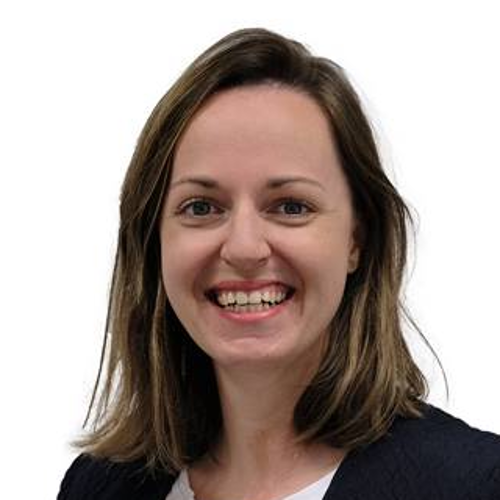Julia RuckAssistant Teaching Professor of German Studies
Office Hours
Education
Ph.D. University of Wisconsin-Madison, 2018
Biography
Teaching fields: Second Language Acquisition, Applied Linguistics, Sociolinguistics, Critical Discourse Analysis, Multimodality
Julia Ruck studied Spanish (B.A.) and German as a Foreign/Second Language (M.A.) at the University of Vienna. Her doctoral studies first brought her to the U.S., where she completed a Ph.D. in German Applied Linguistics and Second Language Acquisition at the University of Wisconsin-Madison. In her position as an Assistant Professor of Second Language Studies and Language Center Coordinator at Webster Vienna Private University (2018-2021), she re-designed the German language curriculum and oversaw the university's academic literacy projects. Most recently, she worked as a Lecturer and Course Coordinator for Second Year German at the University of Tennessee, Knoxville (2021-2023).
Her research focuses on second language learning and teaching with an emphasis on sociocultural, sociolinguistic, and discursive approaches to collegiate German language education. She is particularly drawn to theories that view the cognitive processes of language learning as connected with the social world, within institutional, local, national, and international educational, economic, and political contexts. In her last research project, she used a complex dynamic systems framework to analyzing relationships between individual learner differences and German language learners' engagement with multimodal affordances in filmic texts. She has also published on language variation in L2 education and German language politics. For her current research project, she is designing a Q methods study to explore European and American university students’ and instructors’ beliefs on diversity in collegiate L2 German education.
Dr. Ruck has taught German in Austria, Russia, Uruguay, and the United States. She enjoys teaching elementary through advanced German language and culture courses as well as applied linguistics courses on multilingualism and identity, language politics, language and power, and critical discourse analysis. She has been working in international pre and in-service L2 German teacher education for many years on behalf of the Austrian Ministry of Education, the University of Vienna, and the University of Vienna’s Postgraduate Center.
Publications
Journal Special Issues
2022. with Stephan Schicker, Muhammed Akbulut & Magdalena Dorner-Pau (Eds.). mit.sprache.teil.haben. Sonderheft zur IDT 2022. Deutsch im Kontext von Mehrsprachigkeit 38(1/2). Link
2020. with Naomi Shafer (Eds.). National Standards – Local Varieties: A Cross-linguistic Discussion on Regional Variation in Foreign Language Studies. Critical Multilingualism Studies 8(1). Link
Journal Articles
2023, forthcoming. with the Pipestone Group. On Linguistic Indifference: Notes from a Seminar. German Quarterly96(3).
2022. Konstruktionen von Diversität in Deutsch als Fremdsprache Lehrwerken. Deutsch im Kontext von Mehrsprachigkeit 38(1/2), p. 66-82. (peer-reviewed) Link
2022. Elementary-Level Learners’ Engagement with Multimodal Resources in Two Audiovisual Genres. The Language Learning Journal 50(3), 328-343. (peer-reviewed) Link
2021. Sprachenpolitische Implikationen zur Sprachvariation im Fremdsprachenunterricht. IDV Magazin 99, p. 32-40. (invited contribution) Link
2021. Sprachenpolitische Kooperationen unter dem DACH-Prinzip. Deutsche Lehrer im Ausland, Frühjahr 2021. (invited contribution) Link
2020. The Politics and Ideologies of Pluricentric German in L2 Teaching. Critical Multilingualism Studies 8(1), p 24-56. (peer-reviewed) Link
2020. Multilingualism and Affective Attitudes: The Sociocognitive Profiles of First-Year Learners of L2 German. Die Unterrichtspraxis/Teaching German, 53(2), p. 210-228. (peer-reviewed) Link
2019. Eine Frage der Perspektive? Einstellungen Lehrender zu ‚guten’ Deutsch als Fremd-/Zweitsprache Lehrenden. KDV Info 27(52/53). (invited contribution) Link
2017. Against All Standards: On Regional Variation in the German Language Classroom. Critical Multilingualism Studies, 5(1), p. 112–143. (peer-reviewed) Link
Book Chapters
2015. Identität als Motiv zum Sprachenlernen? Sprache und Identität von uruguayischen Deutschlernenden mit deutschsprachigen Vorfahren. In Beate Baumann, Sabine Hoffmann & Parvaneh Sohrabi (Eds.), Proceedings for IDT 2013, Band 2.1 − Sektionen A1, A3: Kognition, Sprache, Musik. Bolzano, Italy: bupress. Link
2015. with Denis Weger. Graphic Novels im DaF-Unterricht. Potential und praktische Anregungen. In Ulrike Eder (Ed.), Sprache erleben und lernen mit Kinder- und Jugendliteratur II. Theorien, Modelle und Perspektiven für den Deutsch als Fremd- und Zweitsprachenunterricht. Vienna, Austria: praesens. (invited contribution) Link
Other Publications
2021. Review of the book “The Pluricentricity Debate. On Austrian German and other Germanic Standard Varieties”, by Stefan Dollinger, ÖDaF Mitteilungen. Fachzeitschrift für Deutsch als Fremd- und Zweitsprache 1/2021. Link
2021. Review of the book “Österreichisches Deutsch macht Schule. Bildung und Deutschunterricht im Spannungsfeld von sprachlicher Variation und Norm“, by Rudolf de Cillia & Jutta Ransmayr, ÖDaF Mitteilungen. Fachzeitschrift für Deutsch als Fremd- und Zweitsprache 1/2021. Link
2020. Reclaiming Learners’ Agency in Discourses of Discrimination. [Blog post on the Diversity and Decolonialization and the German Curriculum Blog]. Link
2015. with Denis Weger, Brigitte Stückler-Sturm & Mareike Boysen. Österreich vertextet. Literatur für Kinder und Jugendliche. Vienna, Austria: Bundesministerium für Bildung, Wissenschaft und Forschung (BMBWF).
